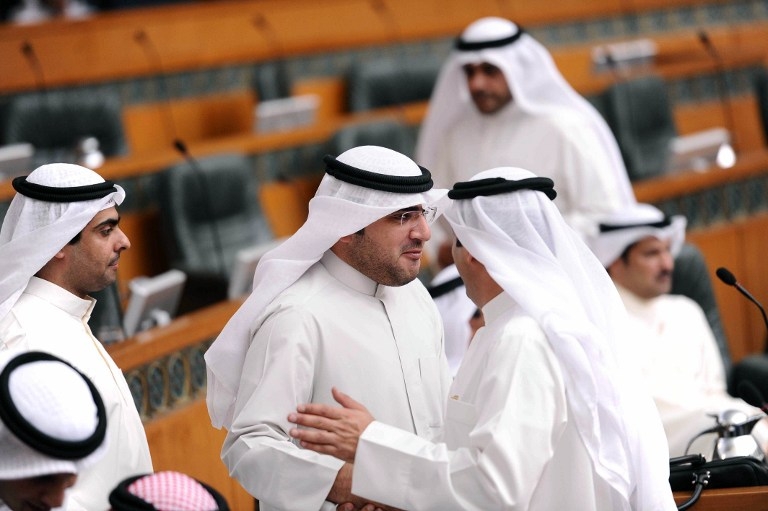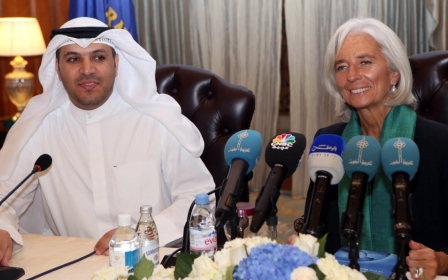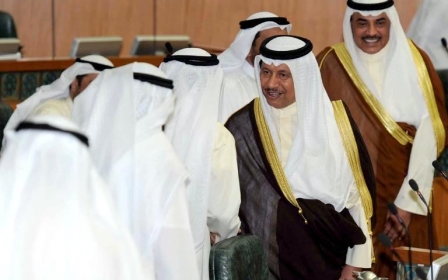Kuwaiti MPs resign over denial for inquest over PM cash handouts

Three Kuwaiti opposition MPs resigned on Wednesday in protest at parliament's denial of their request to question the prime minister over allegations he gave cash handouts to lawmakers.
Riyadh al-Adasani, Abdulkarim al-Kundari and Hussein al-Mutairi had filed a request last week to question Prime Minister Sheikh Jaber Mubarak al-Sabah, in a move that could have led to his dismissal.
They also blamed the premier - a senior member of the ruling family - for deteriorating public services in the oil-rich Gulf state and took him to task for the temporary closure of two newspapers, claiming the move was aimed at stifling freedoms.
In a rare move, parliament voted Tuesday to accept a government request that the grilling be scrapped on the grounds that most of the issues raised were not in line with the constitution.
"I am submitting my resignation from parliament in order to safeguard the constitution," Kundari said before walking out of a parliamentary session with Adasani, who made a similar announcement. In November, the Assembly also scrapped a number of issues which Adasani filed against al-Sabah for discussion in parliament, according to a Kuwait Times's article on Wednesday.
New MEE newsletter: Jerusalem Dispatch
Sign up to get the latest insights and analysis on Israel-Palestine, alongside Turkey Unpacked and other MEE newsletters
Later, Mutairi wrote on his Twitter account that he too had decided to quit. In a video on Kuwait daily newspaper Al Watan's website, Adsani and Kundari shared further concerns about the protection of the country's constitution.
Independent MP Safa al-Hashem, the only female lawmaker, said on her Twitter account that she would consult with her constituents before deciding.
Under Kuwaiti law, the 50-member parliament has 10 days to study the resignations. If it accepts them, by-elections must be held within two months.
Middle East Eye delivers independent and unrivalled coverage and analysis of the Middle East, North Africa and beyond. To learn more about republishing this content and the associated fees, please fill out this form. More about MEE can be found here.




